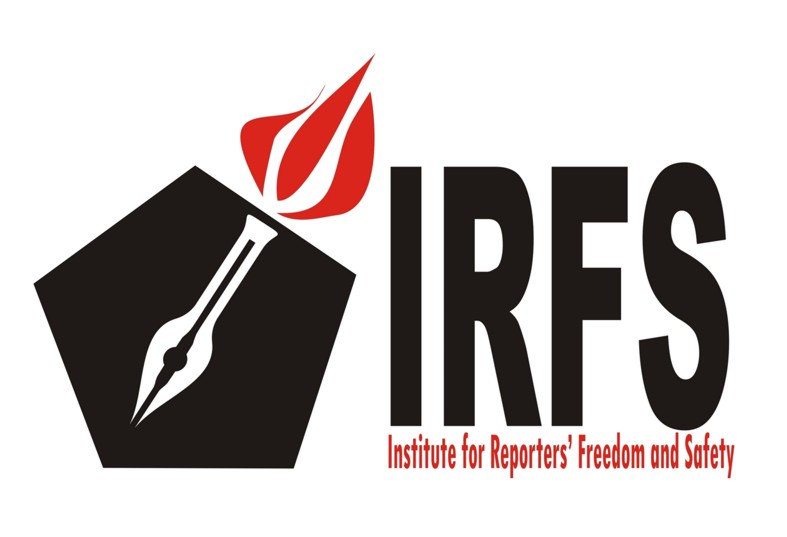 3 May 2009
3 May 2009Baku, Azerbaijan
In connection with 3 May 2009, which is the 17th Annual World Press Freedom Day and the third anniversary of the founding of our organization, we, the Institute for Reporters’ Freedom and Safety, express concern about the press freedom situation in the Republic of Azerbaijan.
Since the 2 March 2005 murder of “Monitor” Journal Editor-in-Chief Elmar Huseynov, serious deteriorations in the area of press freedom have been observed, and political will to protect journalists, prosecute people who perpetrate crimes against reporters, and foster an environment of freedom of information has been completel¬¬¬¬¬y absent. Journalists in Azerbaijan continue to face physical and psychological attacks. In addition, criminal defamation lawsuits against journalists persist. Such lawsuits have resulted in hefty fines and imprisonment for many journalists.
At present there are four wrongfully imprisoned journalists in Azerbaijan; Eynulla Fatullayev, Ganimat Zahidov, Mushfig Huseynov and Novruzali Mammedov. Fatullayev, Zahidov, and Huseynov were convicted on spurious charges and the real reason for their imprisonment is their relentless criticism of the government. Regarding the case of Mammedov, he is accused of espionage and sedition. His trial was closed to the public, but in his indictment act it is written that articles he published in a newspaper called “Talysh Sado” were treacherous. All four of these journalists are internationally recognized as political prisoners.
Another area where severe deterioration has been observed is in the broadcast media sphere. At the end of 2008, the Azeri government ceased the FM radio broadcasts of Voice of America (VOA), Radio Free Europe/Radio Liberty (RFERL) and British Broadcasting Company (BBC). These radio stations were considered by much of Azeri society to be a crucial alternative source for local and international news. Although these foreign radio stations are now broadcasting via internet and shortwave, many people in Azerbaijan do not have access to internet and/or shortwave radios and are therefore deprived of access to VOA, RFERL and BBC. Regarding TV, Azerbaijan has two state TV channels, AZTV, and “Idman Azerbayjan,” and a public broadcaster. All of three of these TV stations are funded through the state budget, but these stations fail to reflect the broad spectrum of views of the Azeri people. All of the private tele-radio broadcasting companies in Azerbaijan are controlled by the government and private TV and radio stations do not serve as a forum for alternative ideas.
In 2009, Azerbaijan made disturbing amendments to the country’s Constitution and the laws on “Mass Media” and “Tele-radio Broadcasting.” A constitutional amendment passed through a controversial referendum conducted in March 2009 banned photographing, filming and/or recording people’s voices without their approval. Although this amendment was allegedly included to protect people’s private lives, the wide-reaching wording the government has approved will likely impede the work of journalists. Changes to the law on “Mass Media” include a ban on newspaper editors that do not have university degrees and editors who are not citizens of Azerbaijan, and a vaguely worded clause allowing the government to close for up to two months periodicals that are “brought to administrative responsibility for abusing freedom of the press or journalists’ rights, and then repeats the same violation within one year.” Changes to the law on “Tele-radio Broadcasting” have outlawed localized broadcasting and given the government the right to revoke the broadcast licenses of broadcasters that are sanctioned by relevant government organs three times or more within one year.
To improve the press freedom situation in Azerbaijan, the Institute for Reporters’ Freedom and Safety calls for Azerbaijan’s government to decriminalize defamation, release Azerbaijan’s four wrongfully imprisoned journalists, prosecute to the fullest extent of the law all people responsible for attacking journalists and violating journalists’ rights, restore the FM broadcasts of VOA, RFERL and BBC, eliminate the ban on foreign broadcasters in Azerbaijan’s national media market, diversify the programming on Public TV, create Public TV 2, privatize AZTV and Idman-Azerbayjan, conduct more transparent and fair tenders for the opening of TV and radio stations in Azerbaijan, and annul the changes made to Azerbaijan’s Constitution and the law on Mass Media and Tele-radio Broadcasting that have further limited press freedom. IRFS calls on the international community to encourage the Azeri government to make reforms to improve the press freedom situation in Azerbaijan and fulfill the country’s obligations in the area of press freedom.

